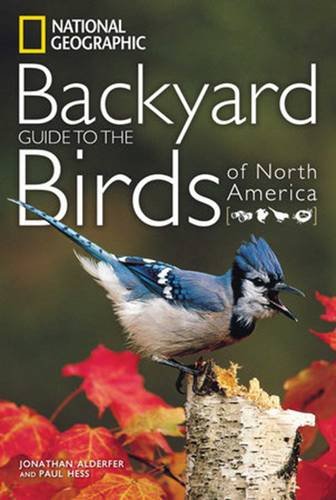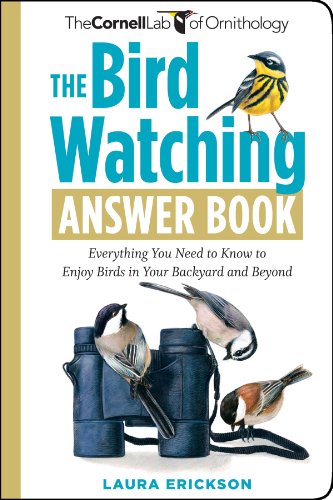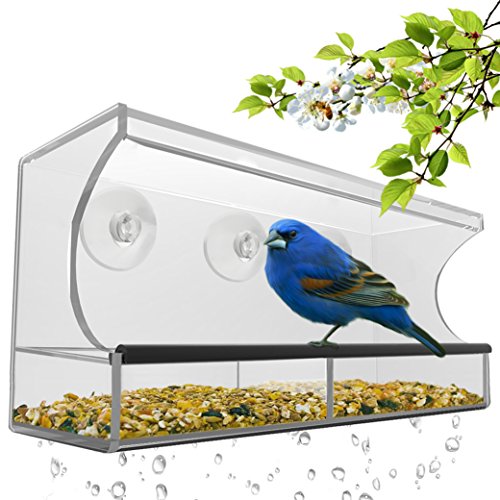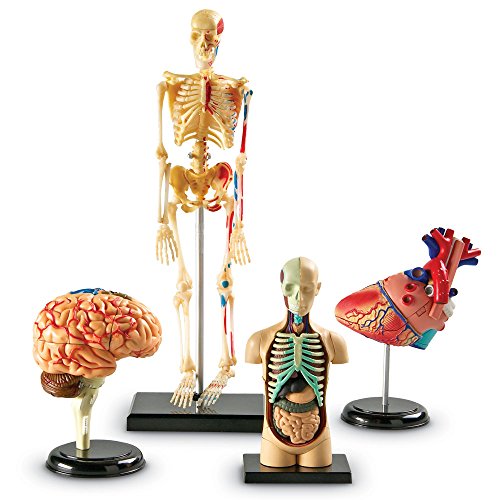Why watch birds? Why study them? While the answer may seem simplistic, the best answers usually are.
God asks us to.
Matthew records Jesus as saying, "Look at the birds of the air: they neither sow nor reap nor gather into barns, and yet your heavenly Father feeds them. Are you not of more value than they?"
And Luke reminds of Jesus' words, "Consider the ravens: they neither sow nor reap, they have neither storehouse nor barn, and yet God feeds them. Of how much more value are you than the birds!"
With so much time spent indoors, dedicating specific time to learning about our feathered friends can yield so much more than a diagram of a bird's anatomy for a notebook.
Maybe the easy observation of birds is meant for us to learn to trust God. Nature is truly God's classroom.
As teachers of both the tangible and the intangible to our children, and indeed the observing world, the study of birds is in fact a leaping off point. As CS Lewis would say, "Further up and further in!"
An Ideal Spot
According to the Audubon Society, the first rule of bird watching is actually named, "Spreading the Birding Gospel to the Masses." God has such a sense of humor.
I would say the first rule of bird watching is to place yourself in the right location to observe. This location is where we take our first leap. Standing on the edge of faith, we can share with our children the things we naturally and physically observe from this ideal spot. And with eyes to see, we can also share the unseen.
Birds can be found nearly anywhere, but for practical purposes, a bird feeder placed in your own backyard gives you a prime seat.
You'll need some basic tools, such as a pair of binoculars, field guide, and a notebook for recording. If you're birding outdoors, a birding vest can be worn to hold your field guide, notebook, pens, and binoculars. You can even wear a traditional birders hat!
The American Bird Association Code of Ethics is a good teaching tool, too.
At this point in your bird watching, here are some things you might observe and record
The type of food needed to supply your bird feeder. Try different types and determine if they have a preference.
The daily weather as you observe. Does the weather impact the number of birds that visit?
Using your field guide, you can observe different types of birds as they visit.
Record the time the birds visit. Do different types of birds visit at different times?
Their behavior as they feed. Are they aware of their surroundings?
Keep track of the total number of birds that visit during a set time over many days.
Some questions to ask your children during observation to guide them to an eternal perspective
Are the birds becoming dependant upon the food we provide? How does this demonstrate that God provides for our basic needs? Did the birds know in advance that food would appear in your backyard feeder?
While observing the time keeping of the birds, can you think of the importance of having day and night? Can you guess why God created birds after he created day and night?
As you observe the many varieties of birds, can you see how God's Principle of Individuality is demonstrated? See Genesis 1:27.
When you observe birds fighting or being hypervigilant of their surroundings, how might this be evidence of The Fall?
Additional ideas for studying birds
Create a compare and contrast chart of the type of birds as revealed in Scripture.
Learn some bird watching vocabulary.
Study the science of birds in flight.
Create a list of questions about birds and then do an internet or library scavenger hunt to find your answers. Divide the questions into groups of five and share among your children. Have the children swap their answers and write a brief paper.
Learn why birds fly in pattern.
Bird watching is a wonderful way to spend time together as a family outside of books and lesson plans. It can bring fun and variety into your homeschool day. And most importantly, it can be a wonderful tool to share the story of God's care and providence for his creation. From the birds of the air to you and I.
Nature Study Printable
Enjoy this printable with your family during your bird watching fun!
Bird Watching Resources
National Geographic Backyard Guide to the Birds of North America (National Geographic Backyard Guides)Binoculars for Bird Watching,10x25 Compact Binoculars,Folding High Powered Binoculars with Weak Light Night Vision Clear Bird Watching Great for Outdoor Activity and Concerts by Fayogoo
The Bird Watching Answer Book: Everything You Need to Know to Enjoy Birds in Your Backyard and Beyond (Cornell Lab of Ornithology)
Nature's Hangout Window Bird Feeder with Removable Tray, Drain Holes and 3 Free Extra Suction Cups. Large Size, 100% Clear Acrylic. Easy to Clean. Great Gift. Guaranteed For All Weather
Bird Journal Notebook: Bird Watching Log
Sibley Backyard Birding Flashcards: 100 Common Birds of Eastern and Western North America
Colore Watercolor Pencils - Water Soluble Colored Pencils For Art Students & Professionals - Assorted Colors for Sketch Coloring Pages For Kids & Adults - Vibrant Colors For Drawing Books - Set of 72
bloom daily planners Binder (+) 3 Ring Binder (+) 1 Inch Ring (+) 10
Binocular for Kids, Happy Gift Compact Birding Wide Field of Wiew Binocular Teen Boy Birthday Presents Gifts Boys Toys 3-12(Blue)






































